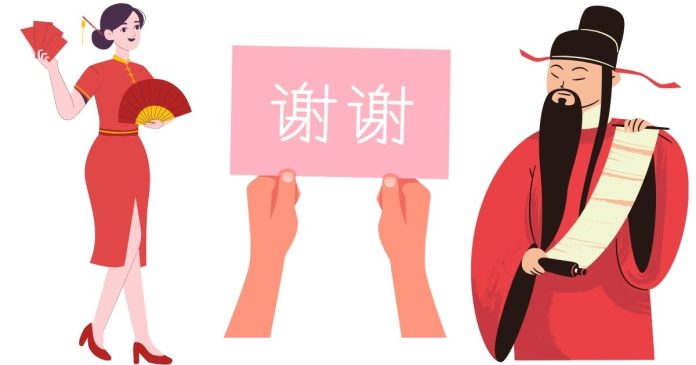The word “qi” (pronounced “chee”) is a term originating from Chinese philosophy and traditional medicine. It has gained widespread recognition in various cultures and practices, particularly in relation to health, martial arts, and spirituality. Understanding the meaning of “qi” requires delving into its cultural, philosophical, and linguistic significance.
In this article, we will know the definition of “qi,” its origins, and its application in different fields.
The Basic Definition of Qi
“Qi” is often translated as “life force” or “vital energy”. It is a fundamental concept in Chinese philosophy, particularly in Taoism, Traditional Chinese Medicine (TCM), and various martial arts such as Tai Chi and Qigong. Qi is thought to be an essential energy that flows through all living things, sustaining life and maintaining balance and health.
The word itself comes from the Chinese character 气, which can also mean “air,” “breath,” or “vapor,” further emphasizing its connection to life energy and the essential force that flows through the body and the environment.
The Role of Qi in Chinese Philosophy
In Chinese philosophy, especially within the context of Taoism, qi is understood as the underlying force that flows through the universe. The balance and movement of qi are central to the Dao (Tao), or “The Way,” which is the natural order and flow of the universe. According to Taoist beliefs, all things are interconnected through qi, and it is essential to align oneself with the flow of qi to live harmoniously with the world.
Yin and Yang: The Balance of Qi
Qi is often discussed in relation to the Yin and Yang theory, which represents complementary forces that interact to create balance in the universe. Yin and Yang are opposites, yet they are interdependent, and their balance is thought to influence the flow of qi. A person’s health, in this philosophy, depends on the free flow and balance of qi within their body, which is in turn affected by external factors such as the environment, diet, emotions, and lifestyle.
Qi in Traditional Chinese Medicine (TCM)
In Traditional Chinese Medicine, qi is central to the understanding of health and wellness. TCM believes that the body is a network of energy channels called meridians, through which qi circulates. Health is seen as a balance of qi flowing smoothly through these meridians, and illness is thought to arise from blockages, deficiencies, or imbalances in qi.
Diagnosis and Treatment Using Qi
Practitioners of TCM use various methods to diagnose and treat disruptions in the flow of qi. These methods may include:
- Acupuncture: Inserting fine needles into specific points on the body to stimulate the flow of qi.
- Herbal Medicine: Using plant-based remedies to restore balance to the body’s qi.
- Qigong: A form of exercise and meditation that focuses on the movement of qi through breath control, posture, and slow movements.
- Massage and Acupressure: Techniques that aim to release blockages and enhance the circulation of qi.
In TCM, the idea is that qi needs to flow freely for the body to remain healthy, and any stagnation or deficiency of qi can lead to physical or emotional ailments.
Qi in Martial Arts
Qi is also a central concept in several Chinese martial arts, particularly in Tai Chi and Qigong. These disciplines emphasize the cultivation, movement, and control of qi to improve strength, flexibility, focus, and overall well-being.
- Tai Chi: Tai Chi is a form of martial art that involves slow, deliberate movements and deep breathing. Practitioners believe that mastering the flow of qi can enhance physical strength, improve posture, and reduce stress. The fluid motions in Tai Chi are meant to harmonize and circulate the practitioner’s qi.
- Qigong: Qigong, which combines movement, meditation, and controlled breathing, is designed to cultivate, circulate, and balance the qi within the body. It is used both for physical health and for spiritual development.
Qi in Popular Culture
Over the years, the concept of qi has spread beyond traditional Chinese practices and has been integrated into various forms of popular culture, particularly through martial arts films, books, and self-help movements. In these contexts, qi is often portrayed as a mystical or supernatural energy that can be harnessed for extraordinary feats.
For example, in many kung fu movies, characters are shown using their control of qi to perform incredible physical feats, such as breaking bricks or levitating. While these portrayals are often fictional, they draw on the real concept of qi as a vital, life-sustaining force.
“Qi” is a multifaceted concept with deep cultural, philosophical, and practical significance. Whether as the vital energy that flows through the body in Traditional Chinese Medicine, the universal force that connects all things in Taoism, or the life force cultivated in martial arts, qi plays an essential role in many aspects of Chinese thought and practice.
Though it is often translated as “life force” or “vital energy,” qi encompasses much more than just physical energy—it represents the interconnectedness of all things and the delicate balance of forces that govern life. Understanding and harnessing the flow of qi can lead to improved health, a deeper sense of harmony, and a more balanced approach to life.


